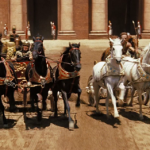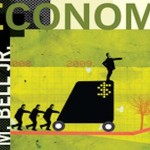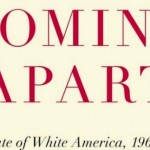Jack Black once said, “I am fairly certain that ‘YOLO’ is ‘Carpe Diem’ for stupid people.” Given that the acronym is just as unintelligible as Latin to those not in the know, it’s still possible to misunderstand YOLO’s meaning—as I discovered when I saw this picture on Buzzfeed. So for those who don’t know, YOLO means “you only live once” and it’s meant to convey a sort of gather-ye-rosebuds-while-ye-may sentiment.
The logic of YOLO and carpe diem is that you should take advantage of today because you don’t know if you’ll be alive tomorrow. The problem is that most of the decisions we would make if we only had one day left would actually ruin us if we continued living a long time. I suspect Horace, who coined the original carpe diem meme, recognized this.
Elsewhere Horace writes, “Boldly undertake the study of true wisdom: begin it forthwith. He who postpones the hour of living well, like the hind [in the fable], waits till [all the water in] the river be run off: whereas it flows, and will flow, ever rolling on… while you are young, with an untainted mind Imbibe instruction: now apply yourself to the best [masters of morality].” In this case, seizing the day – even the hour – means living wisely and well. One is reminded of 2 Corinthians 6:2 “For he saith: In an accepted time have I heard thee; and in the day of salvation have I helped thee. Behold, now is the acceptable time; behold, now is the day of salvation.”
In his best-selling book Man’s Search for Meaning, Victor Frankl uses carpe diem in a similar way for psychological treatment. A woman had two sons, an older one who was disabled and a younger one who died. After she attempted suicide, Frankl had the opportunity to counsel her. He asked her to imagine she was not thirty, “but instead eighty and lying on your deathbed. And now you are looking back on your life, a life which was childless but full of financial success and social prestige.” Frankl shares her reaction:
“Oh, I married a millionaire, I had an easy life full of wealth, and I lived it up! I flirted with men; I teased them! But now I am eighty; I have no children of my own. Looking back as an old woman, I cannot see what all that was for; actually, I must say, my life was a failure!”
I then invited the mother of the handicapped son to imagine herself similarly looking back over her life. Let us listen to what she had to say as recorded on the tape:
“I wished to have children and this wish has been granted to me; one boy died; the other, however, the crippled one, would have been sent to an institution if I had not taken over his care. Though he is crippled and helpless, he is after all my boy. And so I have made a fuller life possible for him; I have made a better human being out of my son.” At this moment, there was an outburst of tears and, crying, she continued: “As for myself, I can look back peacefully on my life; for I can say my life was full of meaning, and I have tried hard to fulfill it; I have done my best—I have done the best for my son. My life was no failure!”
In this process—of looking at life from the lens of one’s death bed—permitted this woman to find meaning in performing the menial tasks required to take care of her son. The reminder of death was not a call to maximize the number or uniqueness of her experiences but rather to live successfully in dignity.
Horace and Frankl give hope that YOLO could be reclaimed. Christians, of course, do not believe that we only live once. We have faith that one day we will be resurrected to eternal life. As Christ died and rose again, so shall we. Yet Scripture makes it clear that the course of our present life shapes our destiny in the next. In Matthew 25, Jesus separates the sheep (who fed the hungry, clothed the naked, and welcomed the stranger) from the goats (who did not help those in need) and says “these [goats] will go away into eternal punishment, but the righteous [sheep] into eternal life.”
In this framework, YOLO serves as a useful reminder— indeed, even a warning— that “our choices seal our fate.” It may help us recall that we only have one opportunity to craft ourselves into the human being we want to be, reminding us that each choice we make is one that defines us and each delay is pushing back the life we were made to live. >So the next time your friends chide you for spending time studying, working, or cultivating virtue, just tell them your logic: you only live once.













